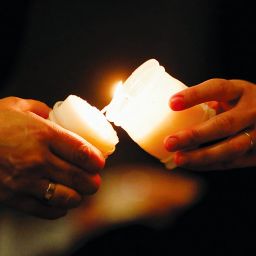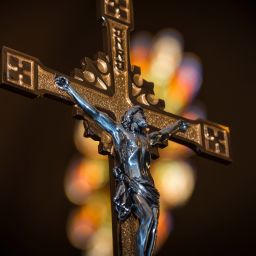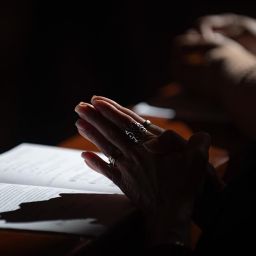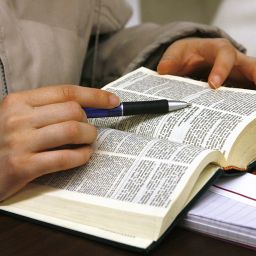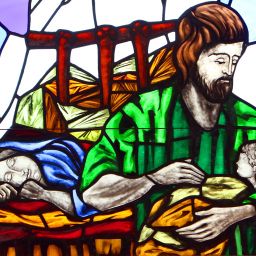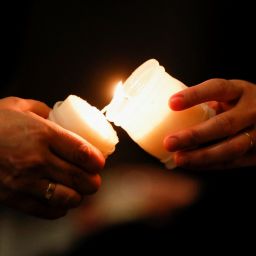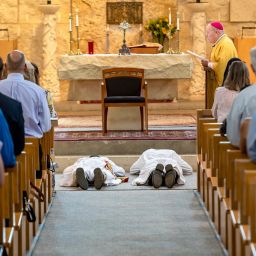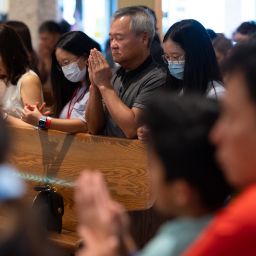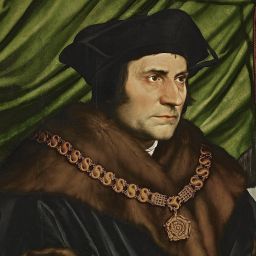By Father John Bayer, O. Cist.
Special to The Texas Catholic
Plans are well underway for the 2024 Synod — that big meeting to advise the bishop about the spiritual, material and administrative situation of the Dallas Diocese. Essential to its success are the “listening sessions” now taking place: two years of honest and charitable dialogue for the good of the Church and her mission in the world.
The Synod Preparatory Commission will turn the fruits of these sessions into resolutions, which will then be debated and voted upon at the Synod meeting. Finally, the bishop will issue a decree regarding what new initiatives he discerns we are ready to implement at that time. As I follow discussions about synods around the world, I sometimes hear two contrasting views that reflect similar misunderstandings about authority in the Church. On the one hand, some think a bishop should just make all the decisions and save us the time and energy it takes to conduct a synod. On the other hand, some are disappointed to hear that the synod body itself does not have final authority. Some people think the Church should be some kind of autocracy; others think it should be some kind of democracy. Meanwhile, the reality God instituted in the Church is hierarchical communion.
I want to explain this further by justifying listening sessions as an appropriate exercise of “synodality” in the Church.
A diocesan bishop has the authority and responsibility to govern the diocese over which he presides. Like every good leader, a bishop should want to govern well, and good bishops know that in order to govern well you need to understand the diocese. Moreover, they need to involve others in the solution, since no bishop is so genius or so bilocating as to be able to do everything himself. The job of a bishop (episkopos) is to oversee — not supplant – the gifts given to the People of God by the Holy Spirit. A synod is thus a powerful instrument by which a bishop can serve his diocese, because it allows him to foster the community discernment and participation necessary for us all to steward our gifts and meet our challenges, and so become the Church God calls us to be: his chosen people who integrate diverse gifts in hierarchical communion for the good of our mission in the world.
This is what a “synodal” Church looks like. In Acts 6:2, the apostles “summoned the body of the disciples” to address an important question facing the Church at that time (namely, finding the first deacons). In Acts 15:6, “the apostles and the elders” gathered to debate another crisis facing the Church (namely, confusion about Gentile Christians). In both cases, episcopal authority (the authority of the “overseers”) was essential. But that authority revealed its purpose in part by facilitating broad participation in the community and anchoring all discussion in the search for God’s will. In Scripture, the hierarchy assumes responsibility for its decisions, but it makes those decisions only while attempting to discern God’s will, and an essential part of that discernment is listening and praying with the community.
We see this synodal dynamic in “The Rule of St. Benedict,” one of the greatest constitutions of community life. In fact, the Vatican quotes it as a model in its Preparatory Document (§14) for its synod on synodality. St. Benedict says,
“As often as anything important is to be done in the monastery, the abbot shall call the whole community together and himself explain what the business is; and after hearing the advice of the brothers, let him ponder it and follow what he judges the wiser course. The reason why we have said all should be called for counsel is that the Lord often reveals what is better to the younger. The brothers, for their part, are to express their opinions with all humility, and not presume to defend their own views obstinately. The decision is rather the abbot’s to make, so that when he has determined what is more prudent, all may obey. Nevertheless, just as it is proper for disciples to obey their master, so it is becoming for the master on his part to settle everything with foresight and fairness. […] [H]e can be sure beyond any doubt that he will have to give an account of all his judgments to God, the most just of judges.”
To summarize, in the Church there is no room for clericalism or self-serving abuses of authority, that is, autocratic leaders who ignore all other gifts of the Spirit and therefore refuse to listen to anyone but themselves. Authority is exercised in the Church as a service. Jesus makes this very clear (cf. Mk 10:42-45). The abbot in a monastery, like a bishop, has authority because, through his office, he mediates the authority of God to the community. His authority makes sense only as an instrument to facilitate discernment and obedience to God’s will — and not the private will of the abbot or anyone else. Moreover, it is essential for the whole community, in some form, to be engaged in the discernment process, for God likes to reveal his will through a variety of ways. St. Benedict thinks God likes in particular to reveal his will through the smaller and humbler (he gets that idea from Scripture), and we can extend that to include all the people who those of worldly wisdom tend to overlook.
So, let us support the listening sessions and other synodal exercises in the Church. Let us renew our efforts to talk openly and substantively about such vital matters as the life and mission of the Church. Let us listen to each other and thereby grow as brothers and sisters, who, like real siblings do not always see eye-to-eye but whose love and commitment can purify differences into healthy diversity. Listening to each other is not just about data collection or sentimentality, still less about gossiping or politicking. It is about the Church living authentically and following Jesus Christ together.
Father John Bayer, O. Cist., is a monk at the Cistercian Abbey of Our Lady of Dallas in Irving.


